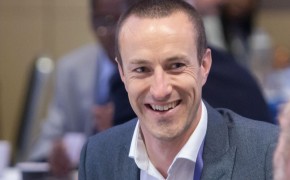A 6 month programme supporting early-stage businesses that are innovating with new or existing technology to solve market problems.
The programme was a response to 2015 NBS research, commissioned by the Creative Quarter and the D2N2 LEP. The report, Creative and Digital D2N2 identified drivers & obstacles to growth, finding that high potential digital businesses under-engage in business support. The key objective was to enable tech SMEs to grow quickly.
The Big House project provides help for creative SMEs at any point in their journey. This Accelerator project is for early-stage businesses that are trading and ambitious to grow fast. A 6-month programme of bespoke business support.
The accelerator was delivered by industry experts and supported by facilitators with extensive experience of high-growth tech start-ups. It included:
- A deep-dive diagnostic
- 6 workshops:
1. Value Proposition & Pitching
2. Marketing
3. Sales
4. Financial Management & Legal requirements
5. Management team & development
6. Financing growth & investor pitches
- Access to academic expertise, research and resources – including bespoke postgraduate research projects.
- A professionally written PR piece for each business
- The option of pitching to Midlands Engine and angel investors
- Peer-to-peer learning and support in an informal group of founders and entrepreneurs
- High value networking and introductions to investors, funders and experienced
- tech entrepreneurs.
The Big House Accelerator was shaped by feedback from the region’s most successful digital entrepreneurs.
Resources needed
Cost - £250,000. Predominantly staff costs, venues, facilitation & mentoring.
Specific expertise to support mentoring in IP, sales, software development sourced on a 1-2-1 basis.
Evidence of success
1368 hours of SME contact time via workshops, mentoring and peer-to-peer support, 9 SMEs introduced new to the market products/processes, 11 new to the firm products/ processes.
5 jobs were created in 3 firms, 2 were awarded grants to recruit graduate placements and 3 to access freelance support. 3 accessed finance for investment and 3 bid for Innovate UK Innovation grants, of which 2 were successful. 10 accessed research projects undertaken by MSc students. 2 gained prestigious clients.
Difficulties encountered
Targeting hard-to-reach tech sector SMEs.
Identifying high-calibre facilitators.
Longitudinal monitoring .
Could not provide direct access to finance. Reliance on external stakeholders to provide financial support & pitch critique.
Small cohorts.
Embedding into wider suppprt structures.
Potential for learning or transfer
The key learnings are transferable – with the focus being flexible across different regional contexts.
This was a relatively ‘low cost’ accelerator because there was no financial contribution to the SMEs. Other modes are sponsored by innovative corporates or banks, and each supports SMEs at different stages. Individual entrepreneurs may progress from one programme to another as their venture develops.
Seeking specialist expertise from outside of the target area was a deliberate strategy as part of an attempt to raise aspirations and share contacts and experiences from outside the local economy. There is potential for sharing a pool of expertise across regions.
Opportunities for inter-regional networking are high.
Sustainable funding is a challenge (especially in the UK) and contingent on access to funding or sponsorship and supportive local economic policy.
Please login to see the expert opinion of this good practice.








